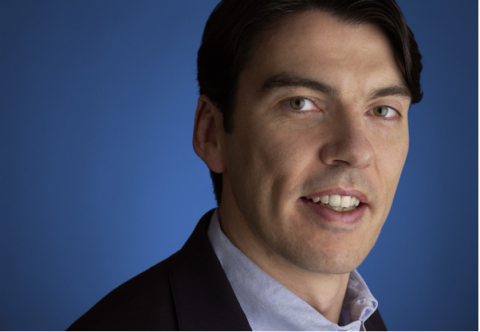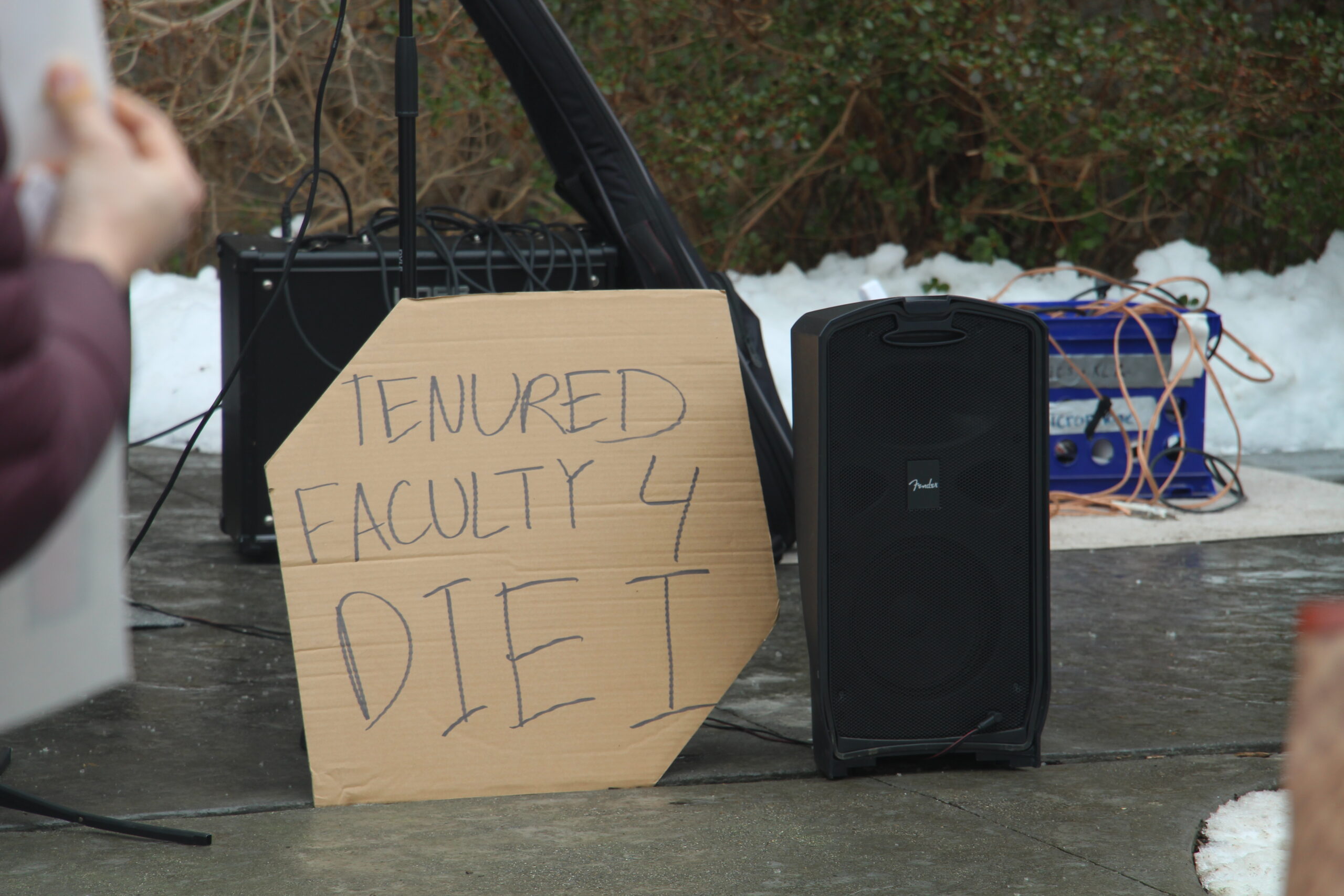To say that Tim Armstrong ’93 is passionate about media is an understatement. The CEO of AOL recently worked out a merge with the Huffington Post in an effort to make AOL a more content-oriented company rather than an out-of-date Internet provider. Commentators and analysts thought this was a risky move, but it is all part of Armstrong’s vision for an easily accessible news media with strong content. Combined with Patch, a site focused on providing hyper-local journalism to communities, AOL is now well on its way to providing an empire of necessary content to the American people.
Armstrong graduated from Connecticut College in 1993 with a double major in economics and sociology. His first job out of college was teaching at Wellesley College for a summer program called Exploration, which enrolls high school students in classes over the summer. His media career began when he founded a newspaper for young people in the finance community in Boston, MA. He later created the first consumer Internet magazine at International Data Group, a Boston-based technology publisher. Before joining AOL, he was the Vice President for Advertising Sales at Google.
Since his days playing lacrosse at Conn, Armstrong has become one of the loudest voices in the debate about the future of journalism. I spoke with him last Monday on his way to work.
Ellie Benner: Do you have any professors or classes that you felt shaped your experience at Conn?
Tim Armstrong: Yeah, I think there are a couple – one was Professor Cruz-Saco, in the economics department. I did my senior thesis with her on the eradication of the cocaine trade in South America, and that had a big impact on me. Professor Gay was a great professor.
EB: What sports did you play?
TA:I played lacrosse for four years and then I rowed crew for a couple years, freshman and sophomore year, and then I coached the women’s ice hockey team. Fran Shields, the athletic director, was my coach.
EB: You coached the women’s hockey team as a student?
TA: Yeah, back then they were trying to turn it into a real team. I coached the team for four years, and I think it turned into a real program the year after I left. That was really fun, actually.
EB: What dorms did you live in while at Conn and which was your favorite?
TA: I lived in the Plex for three years. I lived in Wright, Marshall and Morrison. My senior year I lived in Harkness on the first floor right by the green, which was great. I felt like I earned it after three years in the Plex.
EB: Can you talk about your involvement in Patch and how you see it evolving in the future?
TA: Patch was something I started on a personal level that I funded and co-founded with another person who’s at AOL with me now, Jon Brod. Basically, Patch was formed because in my community [of Riverside, Conn.], we had a real lack in information. As the economy got worse, there was less and less journalism in my town and there was a lot of missing information online. So Patch started as a personal project to see if I could help solve the issues in my town. As we got going and realized it was broader and broader, we decided to ramp up and do a much bigger project. I think Patch is in about 800 communities across the U.S. It will go up to 1,000 communities this year. We’ve hired about 1,000 journalists. I brought Patch into AOL when I came to AOL.
EB: There’s a Patch in New London. I always see a guy with a Patch sticker on his laptop at Bean & Leaf, so I know someone’s working on it.
TA: I’m happy to hear that. That makes me feel much better.
EB: What would you say is the biggest success of Patch so far?
TA: Just at a macro level, the success of Patch has really spotlighted how important communities are. I think that we probably put the largest investment in local communities outside of what the Obama administration is doing. I think at a more micro level, Patch has done everything from help people find lost dogs or animals all the way through to improving transparency in the government and community.
EB: What does Patch still need to work on?
TA: I think one of the things that I’d like to see Patch do a better job of is being more interactive. I think Patch is in a place where it’s having a big impact on the community, but I think it could be a lot more community focused. By that, I mean community members talking to each other. Right now, it’s more about us putting out the content. In the future it has to be about both the community putting up content and us putting up content.
EB: The AOL-Huffington Post merger happened in early February. Can you talk about what’s happened since then?
TA: First of all, Huffington Post is one of the fastest growing sites on the Internet. It grew faster than Twitter did last year. It was a big opportunity for multiple reasons, the main reason being we really think that brands are important in the future of information; Huffington Post is a big brand and AOL is a big brand. Since we’ve closed the deal, we’ve integrated Huffington Post into AOL, we moved all their employees in, integrated the advertising products, and we launched an entirely new newsroom.
EB: What do you mean when you talk about the importance of brands?
TA: If you think about the way consumers live their lives, the average consumer uses about twenty Internet sites a month. When they use the sites, they typically use brands that they trust. So they use the Wall Street Journal, New York Times, Huffington Post and so on. So we bought TechCrunch, the technology site, we have Moviefone, Mapquest, some really big brands. We think as important as the information is, the brands are as important as well.
EB: What do you see as the biggest success of the merger?
TA: First, with Huffington Post and Patch, we’re the only company on the Internet that has national and local news all bolted together and I think that’s a big success. The second thing is that Huffington Post has been very good at pulling together social distribution. So I think a lot of companies are good at putting information out so Google can find it, but I think Huffington Post is one of the best companies in the world at using social distribution, Facebook, Twitter, to share news and information. I think that’s really something that has a big impact. We’ve already applied some of those social networking type attributes to AOL and we’ve seen a really strong growth in our traffic from social networking so I think that will be a huge success.
EB: I know that AOL laid off about 1000 employees in March. Were those layoffs a consequence of the merger or were there other reasons?
TA: It was a partial consequence of the merger because we had overlapping responsibilities between the companies. But the other piece of it is that AOL has been in a turnaround situation. We’re constantly forced to make decisions to make sure that the company is very successful in the future. Unfortunately, part of those decisions are bringing the cost structure down at the company. The worst part of being at AOL is having to reduce jobs. But we’ve been adding jobs, I told you we’ve hired 1000 journalists. What we’re doing is updating that employee base to where the future of the internet is going.
EB: What advice do you have for current college students and recent grads about how they can be a part of the movement to better journalism?
TA: I would really look at the growth industries of where to focus for job searching. First and foremost, start your hunt in areas where there is growth potential. Second thing I would say is be flexible. Even if you don’t get your ideal job out the gates, you’ll learn regardless. The third thing I think is, follow your passions. If you’re passionate about something, even if you don’t get paid for it, you should get involved in it. One of the big opportunities today is the fact that you can have your own blog or you can contribute to other people’s blogs. There are hundreds of companies that will take content from people, so if someone is interested in journalism or being in the media business, even if you don’t get paid you can try it out now. I think that experience goes a long way.
EB: What do you see the news media looking like in five years and what will have changed?
TA: The news will be much faster than it is today, and cleaner. What I mean by that is if you watch a half hour local TV show there’s about ten minutes of content and the rest is ads or non-content related things in the program. I think you’re going to see those value gaps go down to where the real value is. And then the second thing is the brands for the next century are getting created now – what brands do you turn to get your news? The historical brands I think will still remain popular, but I think there will be a whole new crop of brands that come out.
EB: Where do you see yourself in five years?
TA: Hopefully at a Camel lacrosse game outside Harkness. I hope that five years from now that AOL will be a much larger, global provider of information for people. One of the things I’ve learned working in the Internet for so long is that five years is more like fifty years, so hopefully we’ll figure out a lot more creative stuff to do and I’m open to what the future looks like.
EB: What has been your favorite part about working at AOL?
TA: I think it’s the people, the fact that we’ve got very motivated group of people and we’ve really been an underdog so we have people who really like to work hard and who are creative. I think at the end of the day regardless of what company you work at typically it comes down to people – I really like the people I work with.
EB: The toughest part about working at AOL?
TA: I think the toughest part has been turning around the culture. AOL was really in trouble for many years and it’s really taken the last year or two to get the culture back to a winning culture. Having to do layoffs and those things makes it a very challenging situation. We wont be successful if we don’t make those changes but it’s also not what anyone would choose to do.
EB: Anything else you want to say to the Conn community?
TA: I would really underline what a great school Conn is in terms of the type of students who go to Conn. Many of my friends who went to Conn have been very successful across a whole range of different fields on a global basis so I think that Conn is one of those schools that has a culture that will make people very successful. I am very proud of CC overall and the progress the school has made. It’s nice to be an alum. •











Although most Morrisons, like myself, spell their surname with one “s” the dormitory at Connecticut College is spelled with two. Otherwise, this is a very interesting article.